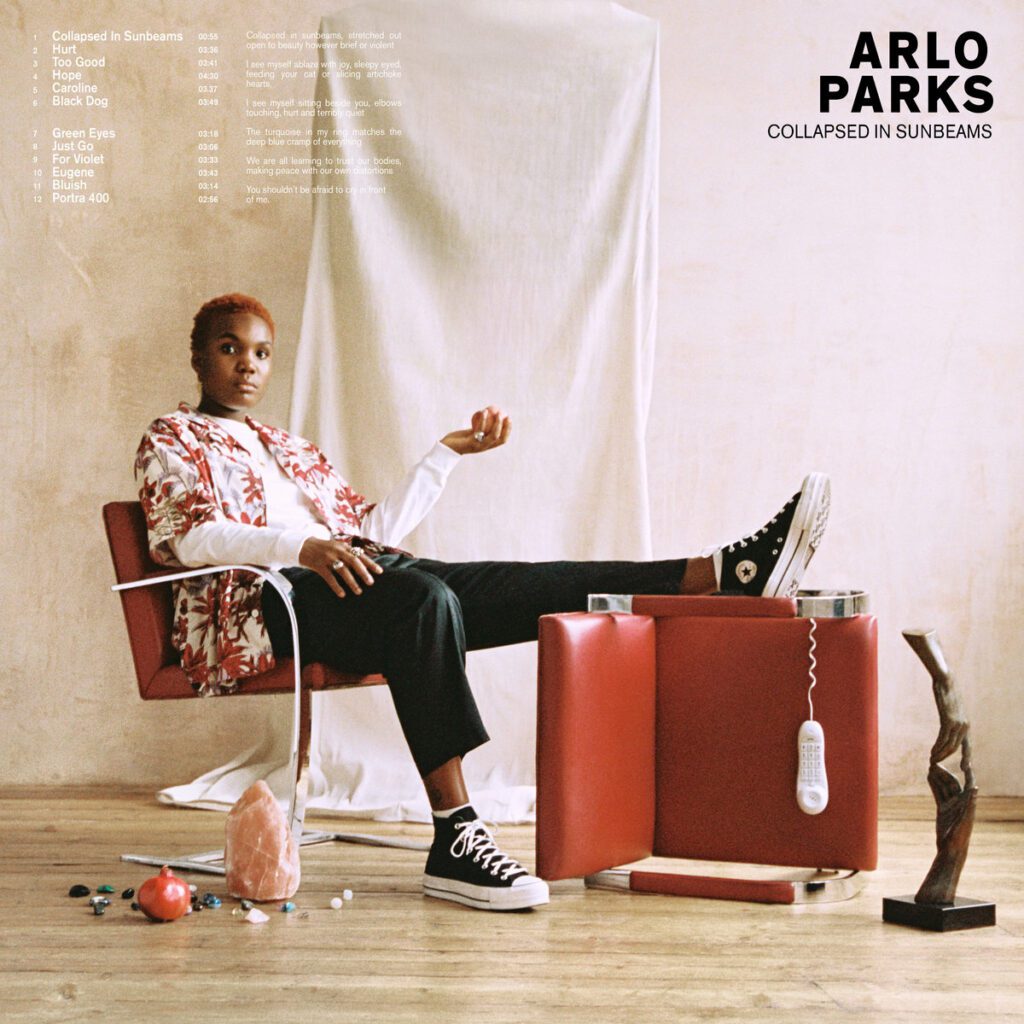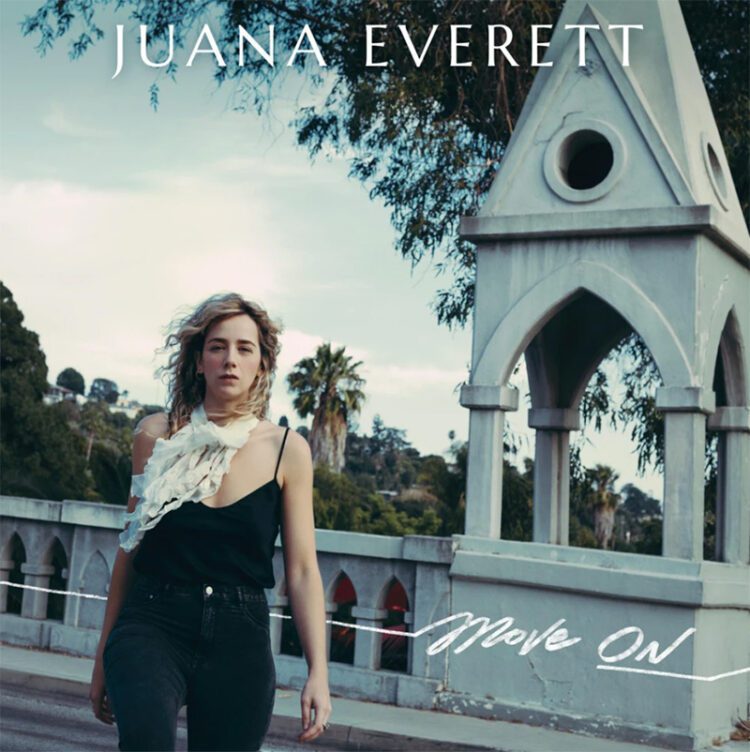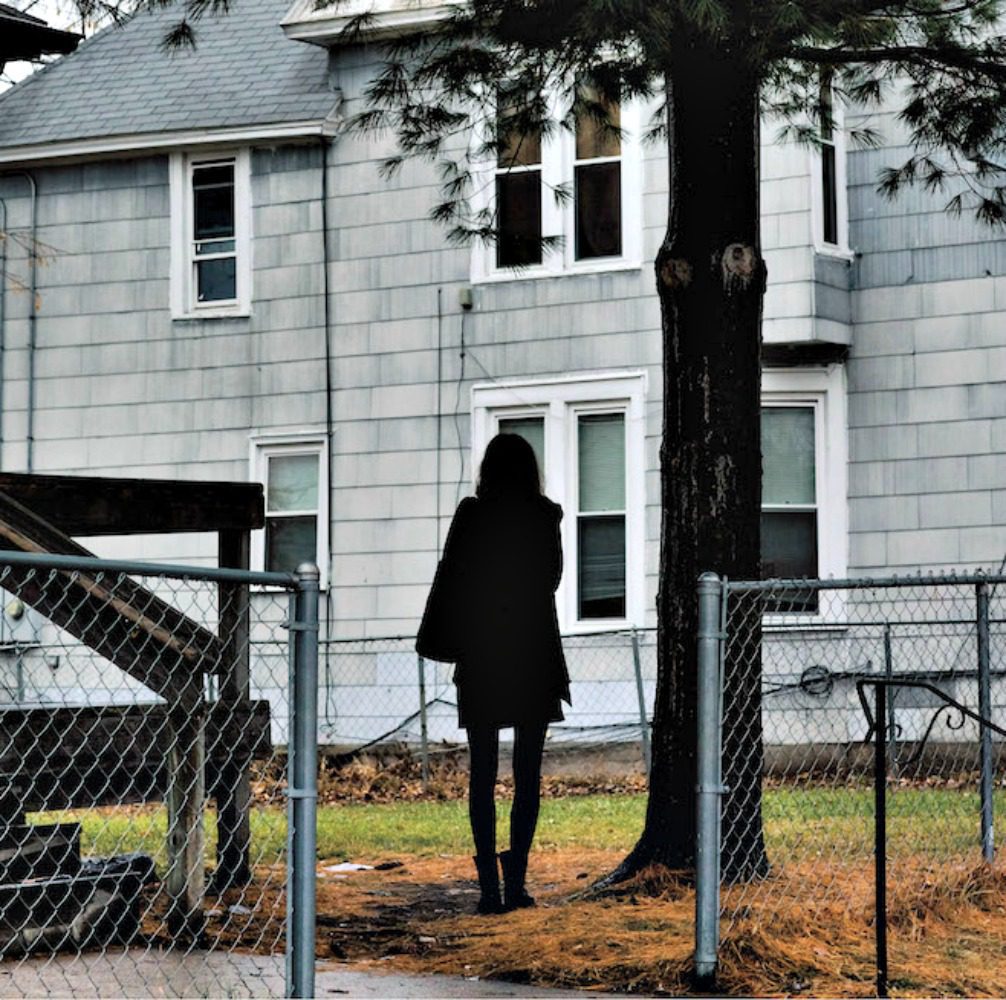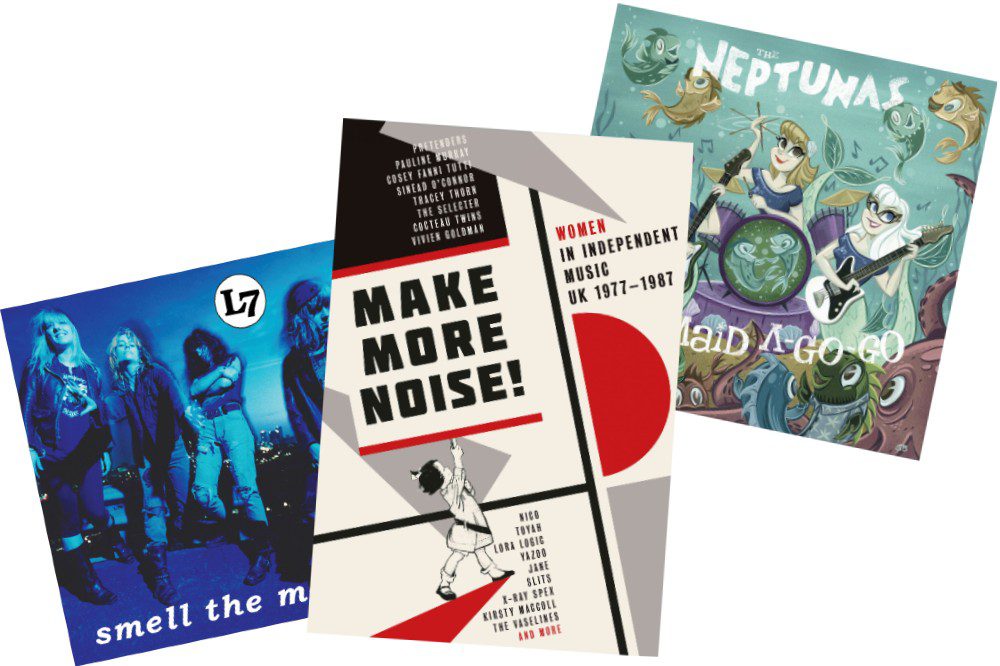MUSIQUE BOUTIQUE: Arlo Parks, Tamar Aphek & Juana Everett

Welcome to Audiofemme’s monthly record review column, Musique Boutique, written by music journo vet Gillian G. Gaar. Every fourth Monday, Musique Boutique offers a cross-section of noteworthy reissues and new releases guaranteed to perk up your ears.

There’s been a lot of anticipation for the release of Arlo Parks’ debut album, Collapsed in Sunbeams (Transgressive Records). The London-based performer broke through in 2018 with the understated, insinuating track “Cola” (quickly snapped up and featured in the HBO series I May Destroy You), followed up by two well-received EPs. When her first headline tour was cancelled in 2020 due to the pandemic, she then focused her energies on creating music that addressed the sudden upheavals in our world. “Hurt,” for example, deals with pain of relationships, but lines like “It won’t hurt so much forever” resonate on a much deeper level. “Where there is this global sense of confusion and uncertainty and fear, I like to think my music provides something soothing,” she told Billboard, and while Collapsed in Sunbeams does have a cool, calming sound, Parks’ poetic self-awareness adds an edge to her work.
The most prominent elements of Parks’ songs are her vocals and the drumbeats; other instrumentation is spare, and somewhat in the background. It gives her work a heightened intimacy, especially so on this album, which she’s said is based around the writings in her own adolescent diary. Listening to her songs is like sitting down with an old friend, the kind who can get you to open up without fear of judgment. “Black Dog” is a remarkable depiction of a friend’s depression, vividly capturing the sorrow that can overwhelm you: “It’s so cruel what your mind can do for no reason.” “Green Eyes” sadly looks back at a relationship broken apart by homophobia.
But despite the somber subject matter, these aren’t songs of despair. There’s a light touch to Parks’ delivery that makes a beam shine even in the darkness, and not just in the songs that are obviously geared to that theme (e.g. the reassuring “Hope”). It’s the recognition of pain, while refusing to be brought down by it, that gives Parks’ music a buoyancy that ultimately leaves you with a sense of optimism. This is an album of multilayered delights.

Israeli musician Tamar Aphek came to my attention when I discovered the highly entertaining video for “Russian Winter,” from her latest album, All Bets Are Off (Kill Rock Stars). It’s a rollicking number, propulsively driven by bass and drums, with a few well-placed guitar and keyboard riffs from Aphek to dress it up, paired to a blast of colorful animation. It provides an explosive start to this taut and edgy album.
In general, the classic guitar/bass/drums power trio lineups have a stripped-down, leaner and meaner sound, which is certainly true of Aphek’s band, and, in this case nicely balanced out by her deadpan vocals. The sparse instrumentation of “Show Me Your Pretty Side” makes that statement sound more like a threat than a request. A rattling drum kicks off “Crossbow,” a stuttering bassline then adding to the building anxiety, with Aphek’s vocals floating coolly on top, oblivious to the discord percolating away underneath. It’s even better when Aphek adds guitar to the mix. “Beautiful Confusion” (a great title that perfectly describes the kind of harmonious dissonance you’ll find on this album), starts out as a slow crawl, with a hint of jazz flavor, before a raw blast of guitar comes in to shake things up.
The unexpected closer is a melancholy cover of “As Time Goes By” — though considering that this is an album of contrasts (harsh and soft, bracing and mellow), maybe that’s not such a surprise after all. It injects a note of nostalgia into this very modern work.

After establishing herself as a musician in her native Spain, Juana Everett relocated to Los Angeles in 2016. It’s a journey that’s very much a part of her new, self-released album, Move On (digital only, available on all streaming platforms), starting with the opening track, “Drifter of Love.” “I wasn’t sure of what I was chasing/but I carried on,” she sings, before urging her restless self to be patient. “Wind Whistle Blow” mines similar territory, a forthright, upbeat number about keeping your head up and forging ahead, no matter what: “When I hear the wind whistle blow/keep moving on.”
There’s a warm, welcoming feeling to this record. Everett has traded her previous punk rock leanings for a folkier, more intimate style, bringing to mind the confessional work of singer/songwriters from the heyday of LA’s Laurel Canyon music scene; Carole King, Jackson Browne, Joni Mitchell, Linda Ronstadt, et. al. (she clearly moved to the right place). The sound is crisp and clean, with moderate, soothing tempos. Sometimes there’s a delicacy, as in “Light Up a Fire,” a gentle song about recovering from a breakup and confronting depression. “Little Tragedies” is a deeply emotional number, a song whose rising hopes are illustrated by its fuzzy ascending guitar line. “Free As a Bird,” though initially somewhat pensive, ultimately looks ahead to redemption. Move On is an album about finding your way, and understanding the journey is just as important as the destination.




